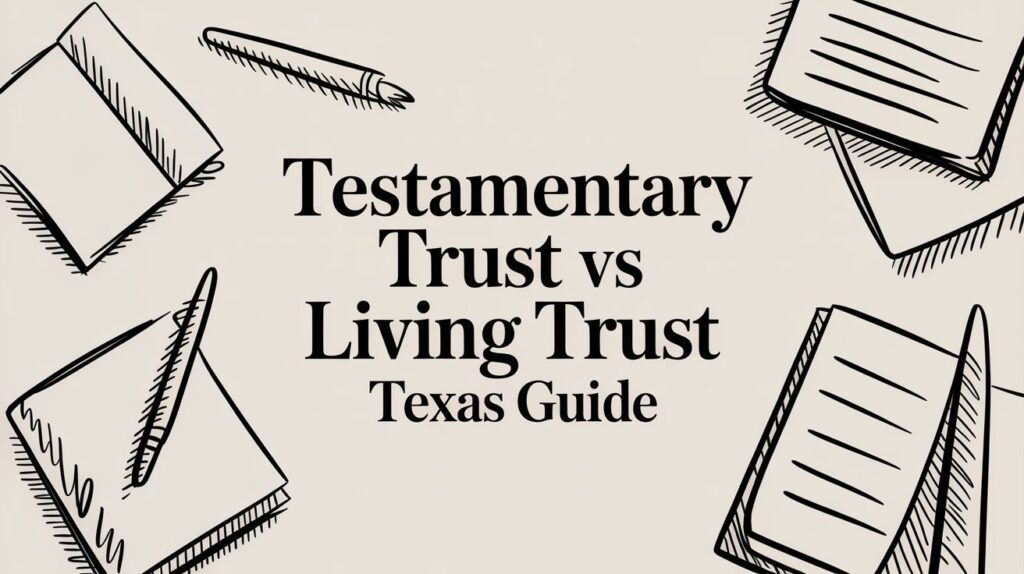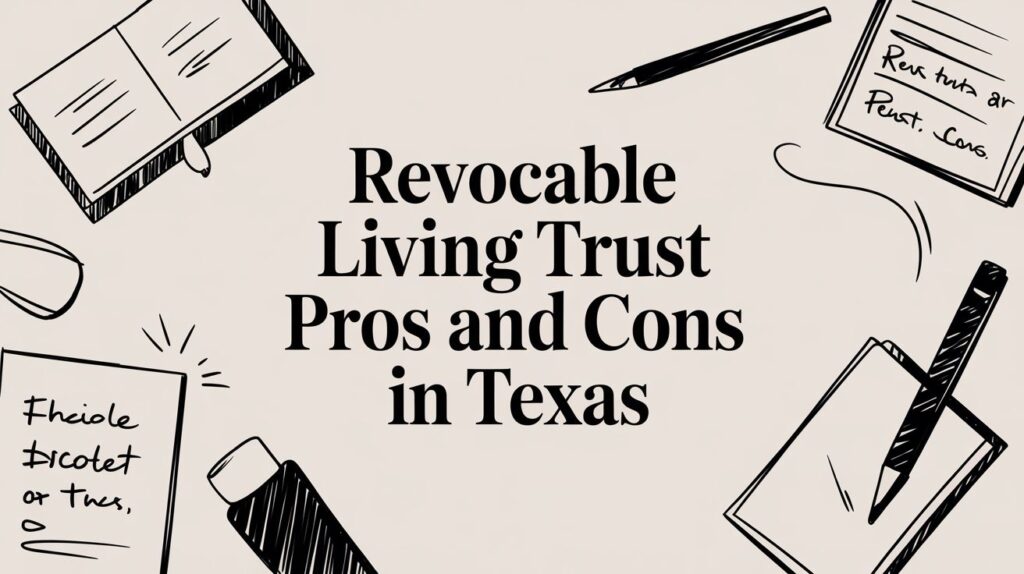Probate can be one of the most misunderstood parts of estate planning. For grieving families trying to wrap up a loved one’s affairs, it’s easy to slip into procedural pitfalls that delay distribution, add unnecessary legal fees, or even create family conflict. That’s why knowing how to overcome common probate mistakes effectively is so important—because what you don’t know about probate can absolutely cost you.
This guide is designed to break it all down. We’re not here to drown you in legal jargon, but rather to walk you through real-world examples, show you what missteps to avoid, and most importantly, help you navigate probate in a way that’s efficient, respectful, and legally sound. Whether you’re the executor, a beneficiary, or someone preparing their own estate plan, learning how to overcome common probate mistakes effectively gives you peace of mind and protects what matters most.

Understanding the Probate Process: What’s at Stake?
Before We Talk About Mistakes, Let’s Talk About What Probate Actually Is
Probate is the legal process of validating a deceased person’s will and distributing their assets according to its terms—or by state law if no valid will exists. While probate is intended to protect all parties involved, it’s not always smooth sailing. Court filings, mandatory deadlines, creditor notifications, and heir disputes can all drag things out.
It’s no wonder probate gets a bad reputation. But with proper planning and awareness, it doesn’t have to be a nightmare. The best way to overcome common probate mistakes effectively is to understand what the process entails from the outset.
Mistake #1: Failing to File the Will Promptly
Time Matters More Than You Think
One of the most common—and avoidable—errors is waiting too long to file the will with the probate court. In Texas, for example, the deadline is four years from the date of death, but waiting even a few months can create unnecessary delays.
Real-life example:
Cindy found her father’s will in a locked file cabinet two months after his death. She assumed everything could wait until after the holidays. By the time she filed for probate, one of the named beneficiaries had passed away, complicating the distribution.
The fix? Don’t sit on the paperwork. Even if you’re still grieving, file the will as soon as possible. That first step sets everything else in motion—and it’s key when you’re working to overcome common probate mistakes effectively.
Mistake #2: Misidentifying or Misplacing Assets
If You Don’t Know What Exists, You Can’t Distribute It
Asset inventory is the backbone of any probate process. Executors are legally required to identify, locate, and value all assets that belonged to the deceased. Missing assets can lead to unfair distributions—or worse, legal challenges.
Example:
Jackie was named executor for her uncle’s estate. She listed his checking account, car, and house but missed an old brokerage account worth over $80,000. Six months after probate closed, a distant cousin discovered the account—and filed a lawsuit.
How to avoid it:
Take your time compiling a complete list. Check bank statements, insurance policies, safe deposit boxes, tax returns, and even online accounts. Getting this right is one of the most important ways to overcome common probate mistakes effectively.
Mistake #3: Ignoring Debts and Creditor Claims
You Can’t Skip This Step—Even If You Think There Are No Debts
Executors must notify known creditors and publish a public notice for unknown creditors. Failing to follow this process can make the executor personally liable for unpaid debts.
Example:
Marcus thought his father had no debt, so he paid out the estate quickly to family members. Later, a medical provider sued for a $12,000 unpaid bill—and the court ordered Marcus to repay the amount from his own funds.
Solution:
Use the state’s creditor notice process. Wait out the legal claims period before distributing assets. It may delay probate slightly, but it prevents major headaches later.
If you’re trying to overcome common probate mistakes effectively, don’t underestimate how important it is to get this part right.

Mistake #4: Distributing Assets Too Early
Being Generous Too Soon Can Backfire
Executors sometimes give out money or possessions before the estate is formally settled—especially when pressure comes from grieving family members. While it may feel kind, it can create massive legal trouble.
Example:
Amanda distributed $50,000 to her siblings because she thought probate was “basically over.” Then the IRS sent a notice about unpaid estate taxes. She had no choice but to take out a personal loan to cover the shortfall.
Rule of thumb:
Wait until all taxes, debts, court approvals, and legal notices are complete. Final distributions should be made only when the estate is truly ready. A little patience can help you overcome common probate mistakes effectively and keep you out of court.
Mistake #5: Overlooking Out-of-State Property
One Property, Two Courts
Probate is state-specific. If the deceased owned property in another state, that property may require ancillary probate—a secondary legal process in the state where the asset is located.
Example:
Tom passed away in Texas but owned a rental condo in Florida. His family only filed probate in Texas, unaware that they needed to open a separate proceeding in Florida. The delay prevented the property from being sold for nearly 10 months.
The lesson:
Check for out-of-state real estate or titled property. And plan ahead—some estate planning strategies can avoidancillary probate altogether. This is a less obvious but important step when you’re working to overcome common probate mistakes effectively.
Mistake #6: Not Hiring Professional Help When Needed
DIY Can Be Dangerous in Probate Court
Probate seems straightforward—until it isn’t. Many executors try to save money by handling everything themselves, only to end up overwhelmed or make mistakes that cost even more.
Example:
Richard used free probate forms from the internet and missed a required inventory deadline. The court removed him as executor and appointed a professional fiduciary—paid from the estate at a rate of $300 per hour.
When in doubt, consult an estate attorney, CPA, or probate specialist. Investing in the right advice early can reduce costs, avoid delays, and help you overcome common probate mistakes effectively.
Mistake #7: Forgetting Digital Assets
Emails, Crypto, and Online Subscriptions Count Too
Today’s estates include more than homes and bank accounts. Executors are now tasked with handling:
- Social media accounts
- Email addresses
- Cloud storage
- Digital memberships or rewards programs
- Cryptocurrency wallets

Example:
Sophie’s son had cryptocurrency assets stored in a digital wallet. She didn’t know the login info—and had no idea it was even there. By the time she discovered it, the funds had been lost to inactivity.
Solution:
Include digital assets in your estate plan, with passwords stored securely. If you’re administering an estate, ask the right questions about digital property. This modern angle is often missed, but it’s vital for those trying to overcome common probate mistakes effectively.
Mistake #8: Not Communicating With Heirs
Silence Breeds Suspicion
One of the easiest ways to trigger drama during probate is to keep heirs in the dark. Even if you’re doing everything right, poor communication can lead to mistrust, legal disputes, and fractured relationships.
Example:
Diane, the executor of her aunt’s estate, was extremely busy and failed to update her cousins about the timeline. One cousin suspected mismanagement and hired a lawyer. That added delays and strained the family beyond repair.
Best practice:
Send regular updates. Be transparent about deadlines, delays, and distributions. When you communicate proactively, it reduces friction and helps you overcome common probate mistakes effectively through trust and clarity.
Mistake #9: Not Reviewing Estate Planning Documents Regularly
What Was Right Five Years Ago May Be Wrong Today
Wills, trusts, and beneficiary designations aren’t “set it and forget it” tools. If someone passes away with outdated or incomplete documents, probate becomes much more complicated.
Example:
Lydia named her ex-husband as executor in a will written in 2008. She forgot to update it after remarrying. When she died, the court followed the outdated will—sparking a family dispute that went viral on local news.
Update estate plans every 3–5 years or after major life events (marriage, divorce, new children, death of a beneficiary). Keeping things current is a subtle but essential way to overcome common probate mistakes effectively.
Mistake #10: Not Planning to Avoid Probate in the First Place
The Best Way to Beat Probate Is to Skip It Entirely
The most effective way to avoid probate mistakes? Avoid probate altogether. With tools like revocable living trusts, transfer-on-death deeds, and payable-on-death accounts, many assets can bypass court entirely.
Example:
James and Linda transferred their assets into a living trust and named their kids as beneficiaries on all financial accounts. When they passed, their estate avoided probate completely. Everything was transferred in under 45 days—no court, no confusion.
In many cases, the effort to avoid probate is less than the effort to fix probate mistakes. That’s why the best strategy to overcome common probate mistakes effectively may begin with smart planning today.

Final Thoughts on How to Overcome Common Probate Mistakes Effectively
Probate doesn’t have to be a maze of legal headaches and emotional stress. The most common mistakes—delaying filings, distributing assets too early, ignoring debts, or failing to communicate—are all preventable. By recognizing these pitfalls in advance and applying practical strategies, you can protect your loved ones from unnecessary costs, delays, and family disputes.
Whether you’re the executor of a loved one’s estate or preparing your own plan, the key to success lies in overcoming common probate mistakes effectively through informed choices, legal guidance, and proactive planning.
Don’t wait for the court to make decisions your family should’ve made together. Take control now. The smoother your probate process runs, the more secure your legacy becomes.








